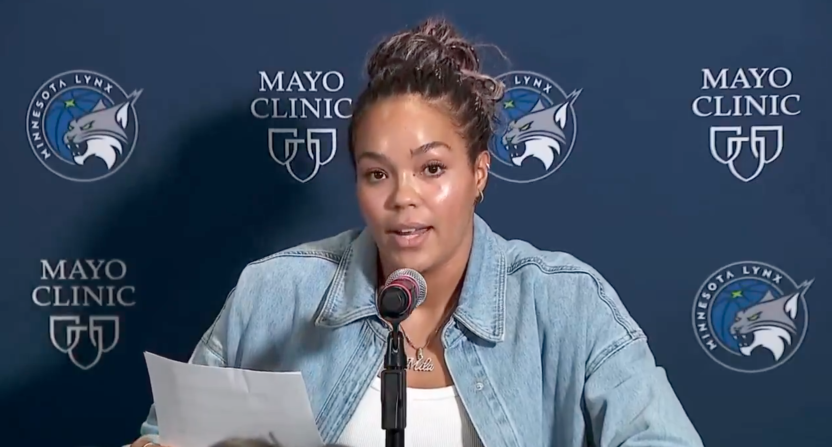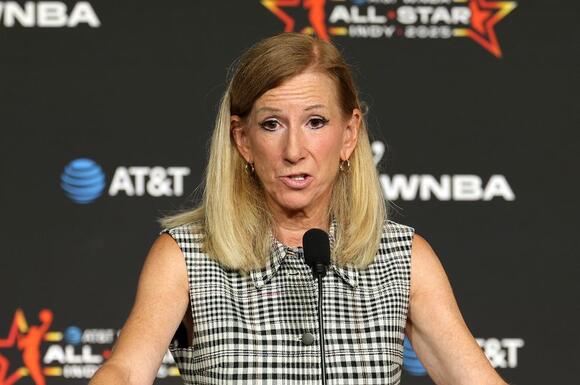In the world of professional sports, the arrival of a generational talent is like being handed a winning lottery ticket. For the WNBA, that ticket is Caitlin Clark. Her debut in the spring of 2024 was nothing short of a seismic event, single-handedly launching television ratings, attendance figures, and franchise valuations into an entirely new stratosphere. Overnight, billionaires were lining up to pay hundreds of millions for expansion teams. Clark didn’t just bring her signature logo-3s; she brought hope and, more importantly, a colossal army of fans.
The league’s primary objective should have been simple: harness this unprecedented wave of new interest and convert Clark’s followers into lifelong fans of the entire WNBA. Seizing this opportunity meant showcasing the league’s already stellar product to a fresh audience. Instead, recent events suggest that rather than cashing the winning ticket, the league’s leadership seems intent on setting it on fire.
The latest evidence of this baffling self-sabotage comes from a now-infamous conversation between WNBA Commissioner Cathy Engelbert and Minnesota Lynx star Napheesa Collier. During her exit interview, Collier dropped a grenade, revealing Engelbert’s alleged perspective on rookie contracts and the value of stars like Clark.

“Her response was, ‘Caitlin should be grateful she makes [$16] million off the court because without the platform the WNBA gives her, she wouldn’t make anything,’” Collier stated, recounting the commissioner’s words. Collier further claimed that Engelbert told her that “players should be on their knees thanking their lucky stars for the media rights deal that I got them.”
While Collier’s broader statement addressed valid issues like officiating and league fines, it was the comments about Clark that exposed the WNBA’s core problem: its fundamental misunderstanding of its most valuable business asset. For many of Clark’s fans, who were already wary of the hostile reception she received—from hard fouls and snide remarks to being snubbed for the Olympic team—Engelbert’s alleged words confirmed their worst suspicions. The perception that Clark wasn’t fully welcome in the league suddenly seemed to be a reality endorsed from the very top.
This perspective isn’t just poor optics; it’s a catastrophic business miscalculation. The notion that Clark, who was a household name signing national endorsement deals while still in college, owes her financial success to the WNBA is patently absurd. She arrived rich and famous. It is the league that should be grateful for the boom she created, not the other way around. For the commissioner of the league to allegedly express this unprofessional and backward-thinking opinion to another active player is almost unfathomable.

Engelbert’s alleged stance plays directly into an outdated and damaging trope that female athletes should simply be thankful for the opportunity to play. It’s a condescending attitude that has no place in modern professional sports, let alone in a league experiencing explosive, star-driven growth. The commissioner’s official response, a non-denial statement about being “disheartened by how Napheesa characterized our conversations,” did nothing to quell the fire. It failed to address the central issue: the league’s leadership appears to harbor a resentful and dismissive view of the very phenomenon that could secure its future.
The absolute worst thing that could happen for the business of women’s basketball is for this massive new fanbase to conclude that the league is not just unappreciative of their favorite player, but openly hostile towards her. That is precisely how you fail to grow a sport. These fans might continue to tune in for Clark’s games, but they now have a powerful motivation to actively ignore or even resent the rest of the league.
Instead of being seen as a business that covets them as lifelong customers, the WNBA risks positioning itself as the enemy. This controversy is more than just a public relations blunder; it reveals a deep-seated cultural issue and a flawed business strategy. Until the WNBA’s leadership understands that Caitlin Clark and her fans are not an inconvenience but a gift, it will continue to squander its greatest opportunity, holding a winning lottery ticket while seemingly searching for a match.





